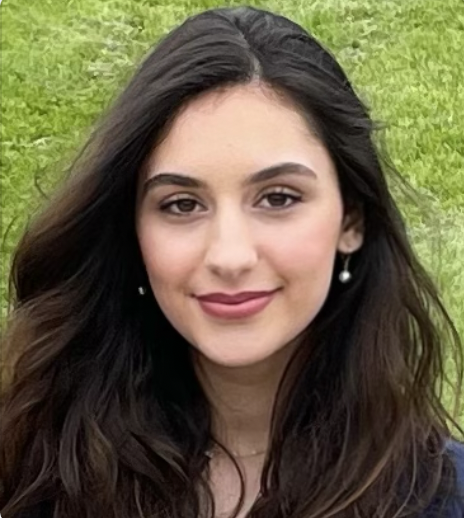 Physics PhD student Danielle Germann reflects on her journey at Brown that led to an NSF Fellowship. Danielle discusses her motility studies research and contributions to the assembly of the EXCITE telescope, intended to study the atmospheres of exoplanets. Inspired by her mother, a prominent clinical researcher working with HIV populations, Danielle feels supported as a woman in physics by the Brown University Women in Physics (WiP) group and is committed to making diversity and inclusion a primary focus of her career. She feels that Brown is a special place where her program creates community and is like family. Read on!
Physics PhD student Danielle Germann reflects on her journey at Brown that led to an NSF Fellowship. Danielle discusses her motility studies research and contributions to the assembly of the EXCITE telescope, intended to study the atmospheres of exoplanets. Inspired by her mother, a prominent clinical researcher working with HIV populations, Danielle feels supported as a woman in physics by the Brown University Women in Physics (WiP) group and is committed to making diversity and inclusion a primary focus of her career. She feels that Brown is a special place where her program creates community and is like family. Read on!
Q. What research will you conduct while supported by the NSF grant?
A. I am fortunate to have wonderful research opportunities in two labs I have worked with during my first year at Brown. Last summer, I worked in Dr. Jay Tang’s lab where I performed motility studies on a novel species of gut bacteria (SM3) and started preliminary experiments on their swarming behavior. While I am passionate about biophysics, I also have an underlying interest in astrophysics that led me to Dr. Greg Tucker’s research group. Here, I have gotten to contribute toward the assembly of the Exoplanet Climate Infrared Telescope (EXCITE) intended to study the atmospheres of exoplanets. There are exciting opportunities to expand on both of these projects, and I will be making a final decision by the end of the semester.
Q. What motivated you to apply for the NSF Fellowship, and what distinguished you from the many applicants?
A. I was first encouraged to apply for the NSF GRF by my mentors, both at Brown and from undergrad. As an undergrad, my interest in multi-faceted fields of physics led me to engage in as many research and teaching activities as I could. I was fortunate to work with many research groups specializing in astrophysics, biophysics, and particle physics and contributed as an author on three publications. In 2021, I graduated Summa Cum Laude from Syracuse University with a B.S. in physics and spent the next six months at CERN working on the LHCb experiment. Outside of research, my time as a student has been spent promoting educational outreach, and I spent many years as a UNICEF volunteer hosting workshops for impoverished children and minorities. I feel that my passion for physics as a whole and drive to share that passion with others is what stood out in my application, and I am incredibly grateful to have been selected.
Q. How have you been supported as a woman in physics here at Brown? How have you been supported in general?
A. As a woman in STEM, I have noticed a wonderful collective effort within the department to promote diversity and inclusion and have been fortunate to engage in that effort. The Brown University Women in Physics (WiP) group has an ongoing mission to provide support within the department and frequently hosts social events to strengthen a sense of community and open up discussions on topics of importance. Overall, there is a delightful sense of support among the faculty and students at Brown, and there is always someone to reach out to.
Q. What does it mean to you to be awarded this distinction during Women's History Month?
A. To receive the NSF GRF award in the midst of Women’s History Month is a recognition that women are continuing to make important contributions in the field of science, and I am honored to be among them. As a woman pursuing a PhD in physics, I am dedicated to being a voice for this cause and will continue to make diversity and inclusion a primary focus in my career.
Q. Who inspires you?
A. A large inspiration in my life is a woman who, in the 1980’s, pursued a career in science and became a prominent clinical researcher, devoting many years to helping the HIV community and working to find cures for other deadly and infectious diseases. Also finding time to foster special needs animals and volunteer for countless causes, this woman, my mother, placed her career on hold in order to provide the guidance I would need to pursue my dreams. She nurtured my vivid imagination, interests in acting and ballet throughout my childhood, and has encouraged me throughout my journey in becoming a physicist. Her belief in me has carried me far.
Q. What do you feel distinguishes Brown from other programs, and what about Brown is special and critical to your success?
A. Not only does the PhD Program at Brown offer top-notch graduate-level academic preparation and incredible research opportunities, but part of what makes Brown so special is the people. The graduate student body in the physics department alone is so diverse and unique; everyone has a captivating story to tell. I admire my peers greatly and am lucky to be among such intelligent young adults.
Q. What does Brown Physics mean to you?
A. Being enrolled in the Brown PhD Physics Program is obviously an incredible honor, and my passion for physics has grown even stronger since being here. More importantly though, the way the program encourages collaboration and community among the students has made such a positive difference in my experience this first year. We are like a family, and we look out for one another.